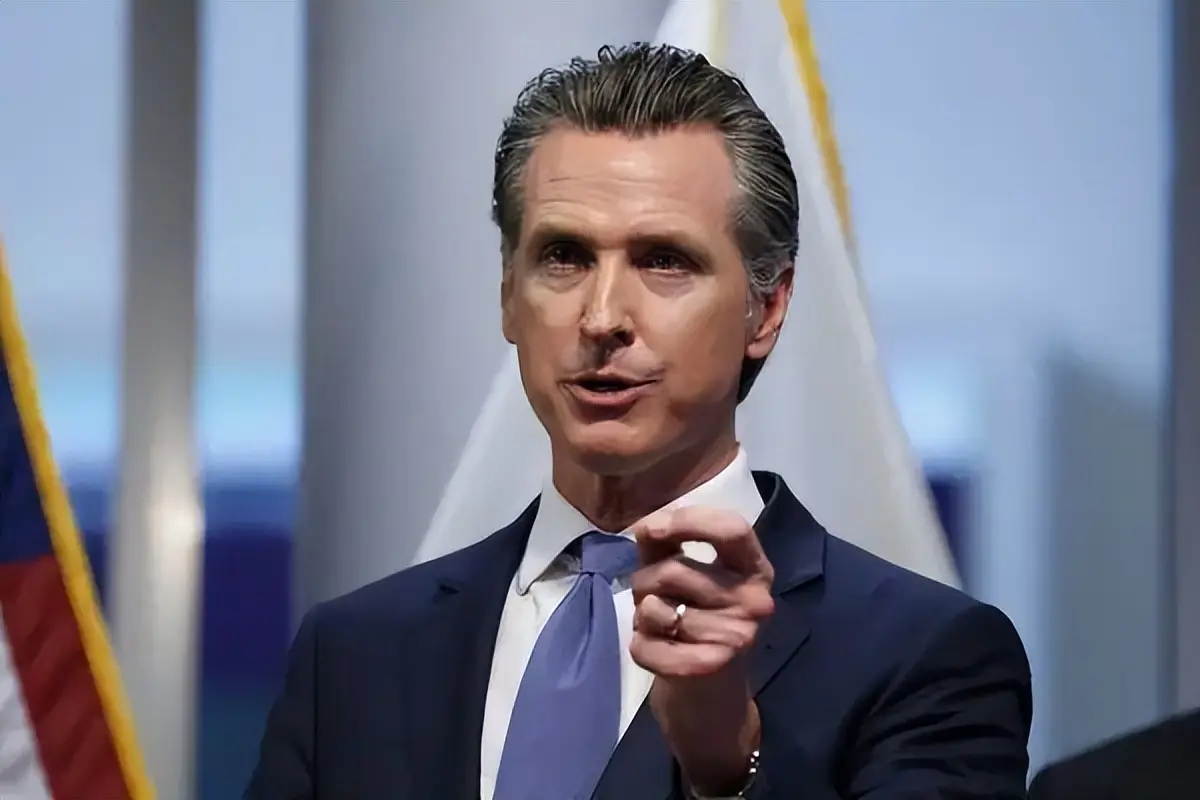
Recently, California Governor Gavin Newsom severely criticized the current tariff policies of the Trump administration, pointing out that these policies are having a profound and serious impact on the California economy. In his public speech, he warned that the current economic situation in California has "raised a red light" and called on the federal government to adjust trade policies as soon as possible to avoid aggravating the risk of economic downturn.
The import volume of the important logistics hubs in Southern California - the Port of Los Angeles and the Port of Long Beach - has dropped by as much as 35% at present, while the Port of Oakland in Northern California has also suffered a 20% decline in import volume. Across the state, the number of cargo ships scheduled to enter the port has sharply decreased by 60%. Newsom criticized the federal government, especially the tariff policy implemented by President Trump, for taking unilateral measures on the grounds of national security without adequate assessment and consultation, which has already had a substantial impact on major industries in California. Especially in the fields of agriculture, manufacturing and small businesses, enterprises are experiencing a chain reaction such as reduced orders, rising costs and loss of international market share.
California is the world's fourth-largest economy, and its prosperity depends on a free and open trading system. The current policy not only undermines the credibility of the United States on the global stage, but is also directly threatening California, the most innovative and export-oriented region in the United States.
For this reason, the California government has officially filed a lawsuit with the federal court, challenging whether the Trump administration's unilateral imposition of tariffs under the International Emergency Economic Powers Act (IEEPA) is legal. Newsom believes that this law should have been applied to deal with genuine national emergencies and should not have been used as a trade policy tool. He pointed out that tariff measures lacking congressional authorization not only undermine the legislative process but also infringe upon the legitimate rights and interests of state governments and enterprises in foreign economic activities.
This lawsuit has drawn widespread attention in the legal and economic fields. The International Emergency Economic Powers Act was mainly used in the past to impose sanctions on hostile countries, such as financial restrictions on Iran, North Korea, etc. However, imposing tariffs on long-term trading partners based on this is questionable in terms of its legal applicability and rationality. Furthermore, this practice has triggered retaliatory tariffs from several major trading partners of the United States, further intensifying domestic export pressure.
Not only that, some ports in California have already witnessed a large number of containers being stranded and insufficient storage space. This not only affects logistics efficiency but may also continue to deal a blow to jobs related to transportation and warehousing.
California is one of the most active states in foreign trade in the United States, especially playing a crucial role in economic exchanges in the Asia-Pacific region. If the current policy path is not corrected in time, the trade ties between California and the Asian market will be further weakened. In the long run, this will cause irreversible damage to the competitiveness of the United States in global trade.
Industry insiders are also generally concerned that if the tariff policy remains high and unchanged, enterprises will be forced to shift their supply chains overseas or to other countries, further weakening the production and employment base in the United States. A latest survey released by the California Chamber of Commerce and Industry shows that over 45% of businesses are considering adjusting their procurement or production strategies to cope with policy uncertainties and rising trade costs.
In the face of the current situation, Newsom called on the federal government to communicate more closely with the states, especially when formulating major trade policies, to listen to the voices of local governments and the industrial sector. He emphasized: "We can no longer be excluded from the policy-making process." The actual situation of a local area should serve as the basis for national policies.
As California files a lawsuit against the federal tariff policy, the progress of this case in the coming months will have a wide-ranging impact on other state governments, the business community and even the international trade pattern. Against the backdrop of increasingly complex global trade and increasingly sensitive supply chains, how to maintain openness and cooperation while safeguarding national interests may become a new issue that the federal government urgently needs to consider.

According to a recent report by Rich Asplund, a columnist for Barchart, the global sugar market is currently experiencing a complex and profound supply-demand game.
According to a recent report by Rich Asplund, a columnist f…
On January 13th local time, the three major US stock indice…
Recently, the 2026 edition of the MIT Technology Review lis…
On January 15, 2026, the US military announced the seizure …
At the 2026 J.P. Morgan Healthcare Conference, a joint anno…
For much of 2025, the market was rethinking whether the dol…